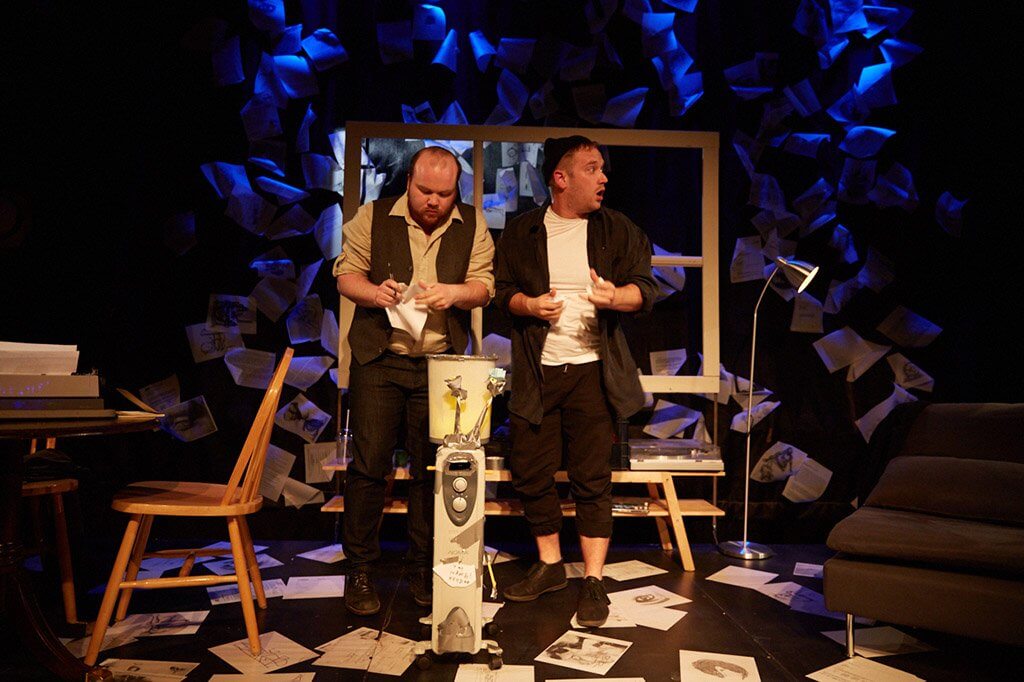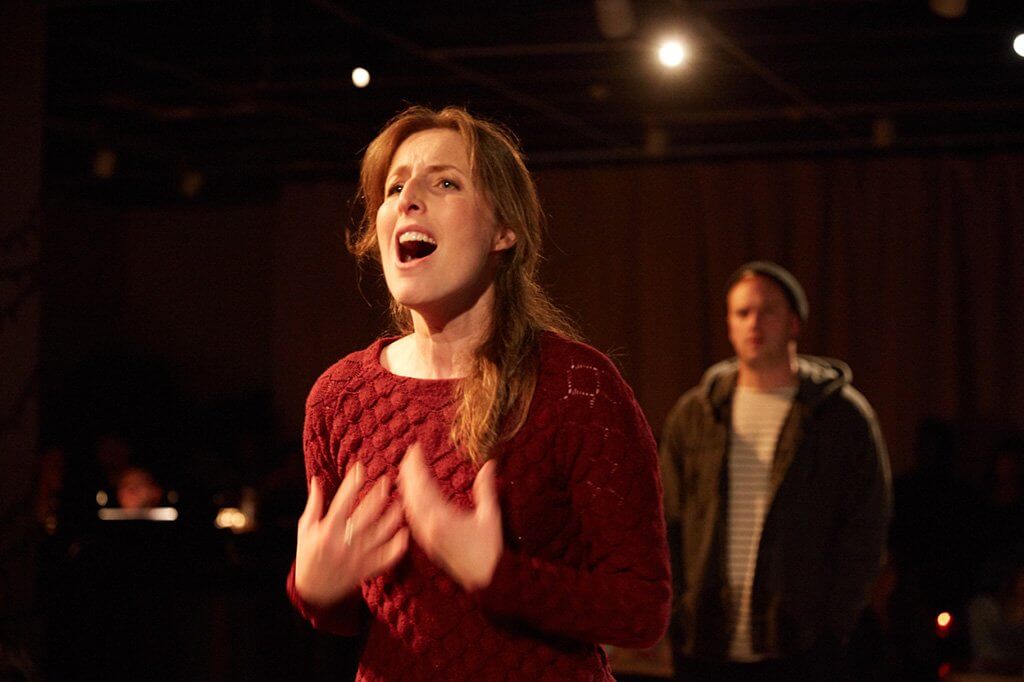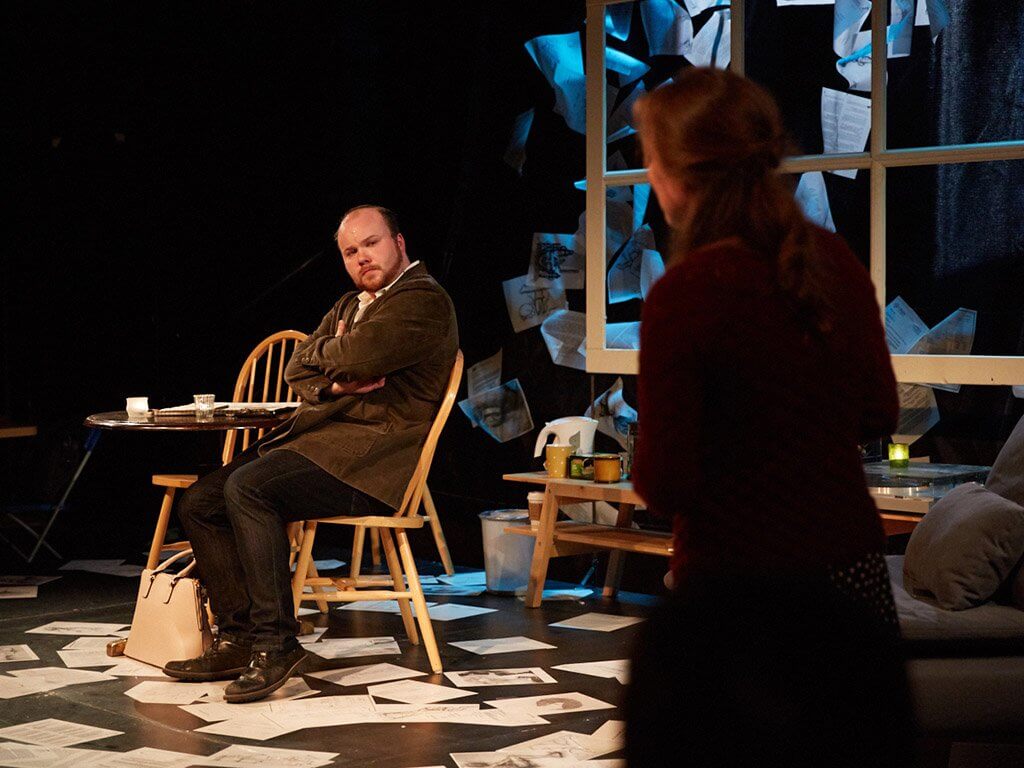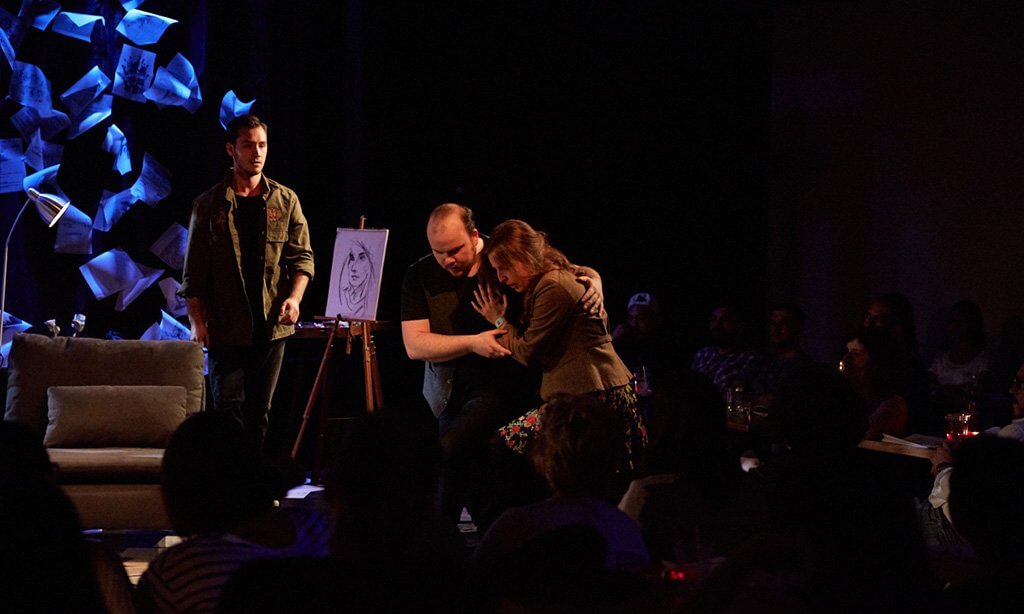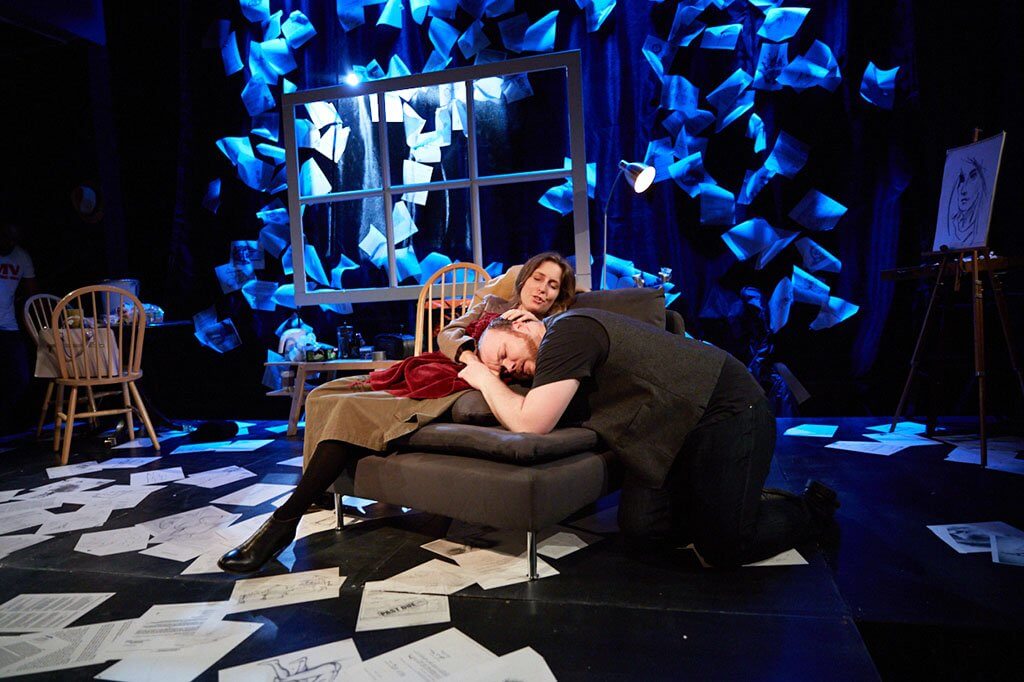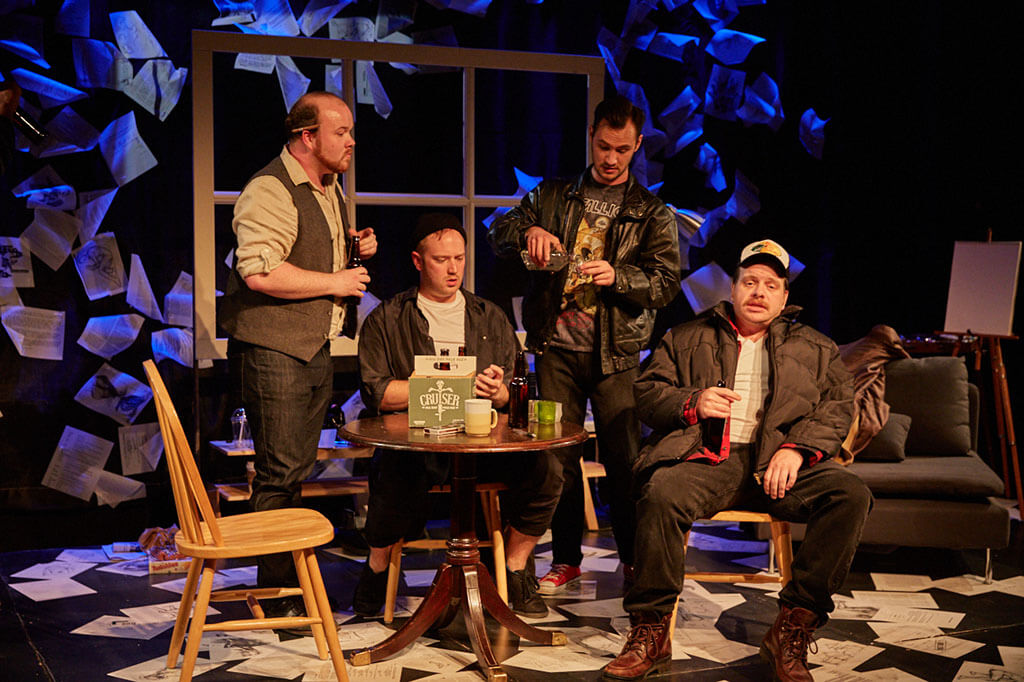
Puccini: La bohème. Joel Ivany, stage director. Topher Mokrzewski, music director. May 19 to June 2, Tranzac Club, 292 Brunswick Ave., Toronto.
This is the show that started it all. I am referring to Canadian stage director Joel Ivany’s brilliant re-imagining of that perennial Puccini favourite, La bohème, premiered in the spring of 2011. Its fresh take on youth, life, and love wowed Toronto audiences and propelled the Against the Grain Theatre on an upward trajectory to what it is today, widely regarded as Canada’s premiere small, “Indie” opera company, innovative and risk-taking, bringing the revered art form into the 21st century.
I saw the ATG production back in 2011 and found Ivany’s way with the opera very creative. Few works resonate with contemporary audiences quite like La bohème — after all, young love never gets stale. It’s also the most “updatable” of operas — I recall a Bohème some years ago set in a high-rise apartment building, and the lovers meet in the laundry room! Perhaps the most famous was the Opera Australia production back in the ‘90s by Baz Luhrmann, which went on to Broadway with huge success. I also saw an off-Broadway play in Greenwich Village called Rent, loosely based on the same story, another major hit.
Sung in English with a newly rewritten libretto by Ivany and updated to present-day Toronto, the ATG version is full of local references, designed to give TO audiences that warm and fuzzy feeling. There’s the occasional profanity, all in character and never gratuitously vulgar. The performing space is equally unorthodox, in the bare-bones environs of the Tranzac Club in the Annex, an appropriately Bohemian neighborhood full of University of Toronto students with a few street people mixed in for good measure. Incidentally, I noticed that the Tranzac Club is now also known as the Toronto Australian New Zealand Club.
I made a conscious effort of comparing the performance I saw this evening with six years ago. A few things I’ve noticed — the seating arrangement is a bit different, still with tables but also more seats arranged in the more typically auditorium fashion, facing a makeshift stage. My concert companion said there was no raised platform for the staging area six years ago. Now the sightline is better. The venue is tiny by opera house standards, 120 seats maximum, with a well-stocked bar on one side. Not exactly a fancy-looking joint and a far cry from Café Momus, but hey, it’s very TO and appropriate to the story!
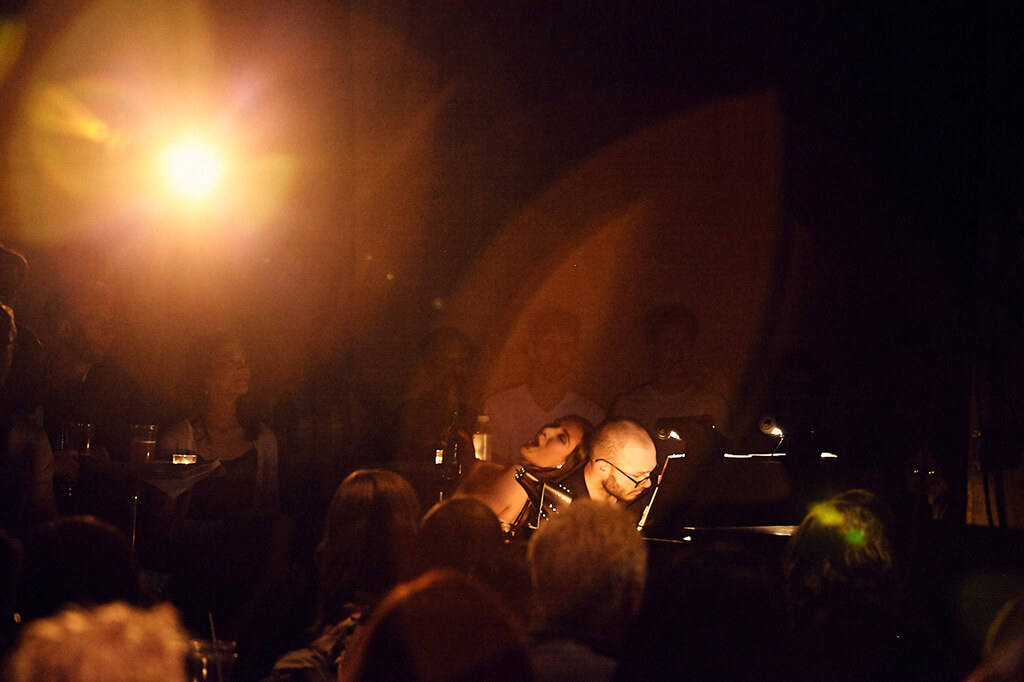
The opera program this time around is in the form of an amusing “La Bohème Newspaper” with the headline story The Rent is Too Damn High! The classified ads are mostly fake, with a hilarious Stuart Hamilton In Memoriam, a bare-chested photo of Stuart in leather chaps, with the caption “Oh honey, I wrote that opera!” Well, that set the tone for the evening brilliantly! This revival strikes me as having more staging than last time, when there was more action taking place amongst the audience. Either way, it gives the proceedings a sense of realism and immediacy.
The principals are completely different from six years ago, but like last time, the voices are fresh, youthful, home-grown, well-trained and beautiful. Kimy McLaren (Mimi) has an attractive, pure-toned lyric soprano, cool in timbre and ideal in Mozart. Puccini isn’t a composer one would expect to be in her repertoire. That said, she proved to be a fine Mimi, with an affecting “Donde lieta…Addio senza rancor.” (Sorry, don’t remember Ivany’s English adaptation!) She was at her best in Acts Three and Four. If I were to quibble, given the cold snap in Act One, why in the world is she in a short skirt?
Adanya Dunn was a properly flirty Musetta, looking fabulous and acting up a storm, with just the ideal bright tone for the role. Act Two belongs to Musetta, and Dunn took full advantage, singing a seductive Waltz and serving up some outrageous “footwork” to her Alcindoro, hilariously played by character baritone Gregory Finney in arguably his best role.
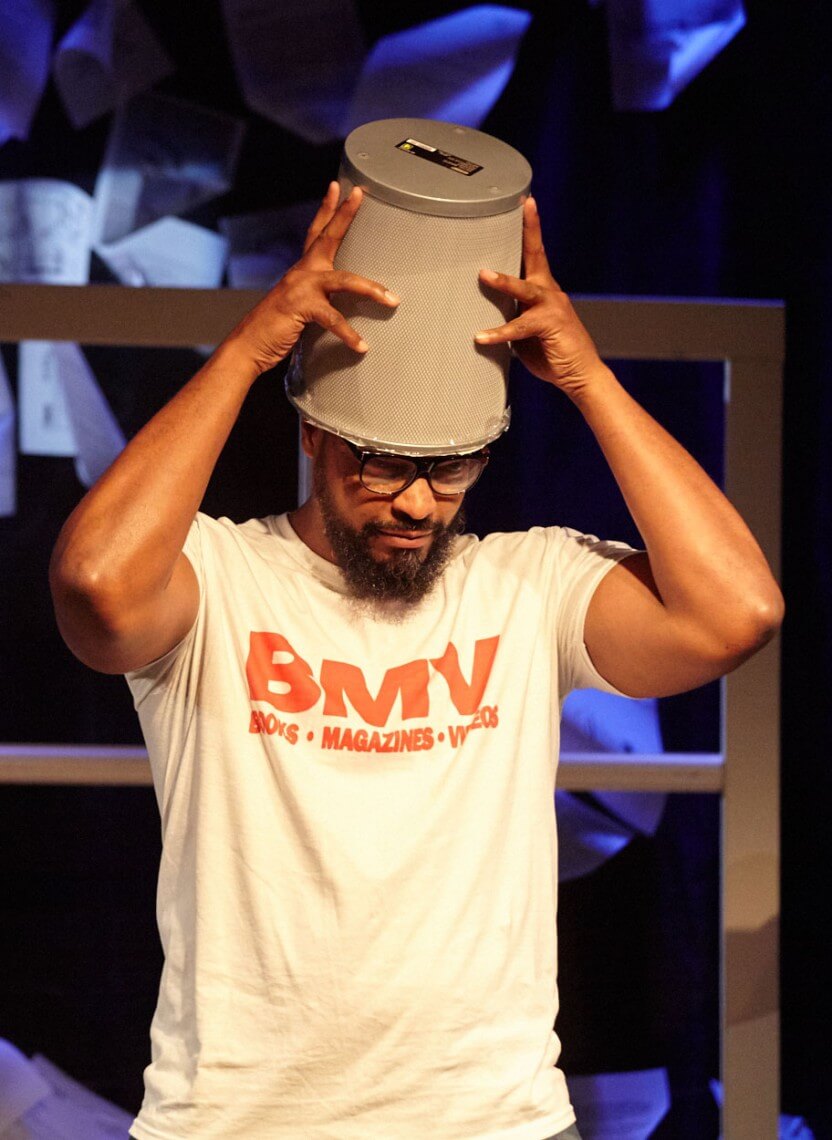
Rodolfo is tenor Owen McCausland, another Mozartian. He impressed everyone by jumping in for three performances of Tito at the COC a few years ago, an amazing feat given he was still in his early ‘20s. Just last February, he was a very fine Tamino. His Rodolfo tonight was heartfelt, sincere, and vocally ingratiating, his trademark fast vibrato in forte passages more noticeable given the tiny space. His “Che gelida manina” had attractive, warm tone, a rather precarious high C notwithstanding. He recovered well from that point on, singing flawlessly to the end.
Among the men, top vocal honours this evening belonged to baritone Andrew Love as vocally wonderful and dramatically engaging Marcello. He took a bit of a detour from opera, appearing in Les miserables in New York for three years. Now he’s back in Toronto and back to opera, and he never sounded better. Since I last heard him in the children’s opera, Laura’s Cow, four years ago, his baritone has grown in warmth, beauty, volume, and stamina — Broadway has done wonders for him. His English diction was also the clearest. Generally speaking, the higher the voice, particularly the women, the harder it is to understand the words due to the laws of physics of vocal production. That said, the diction tonight was very good.
The supporting Bohemians, Kenneth Kellogg (Colline) and Micah Schroeder (Schaunard) were both fully up to the task. The small chorus of eight, all from U of T, did beautifully in Act Two. Given the physical limitations of the venue and the time/place shifting, there are significant cuts in this production. No children in Act Two, including that annoyingly whiny little boy pleading to his mom “Vo’la tromba il cavallin!” The Christmas parade that ends the Act is gone, as is the gate of Paris that opens Act Three. In Act Four, Musetta sells her earrings to buy a muff for Mimi’s cold hands, but it has been replaced with a much more practical blanket.
As mentioned, there are plenty of local references in this production, from the mildly amusing to belly laugh-inducing. This sort of updating might bother the purists — there were a few in the audience tonight judging by their stone-faced expressions — but it doesn’t bother me in the least. La bohème might have been originally set in late 19th century Paris, but its kernel of truth is about emotions, of love, fidelity, jealousy, sacrifice and devotion that are ultimately timeless. Ivany has done a remarkable job at distilling what’s truly important and make it as fresh and relevant in Puccini’s time as it is today.
I’d be remiss not to mention the magnificent playing of music director Topher Mokrzewski, who single-handedly — okay, double-handedly — brought the sublime score to life on the piano. It’s not easy to take on the responsibility of a full orchestra. He could be forgiven for a few moments of languorous tempi, milking the emotions a bit, but hey it’s Puccini and it’s allowed!
Six more performances to June 2. Go here for details. The run is sold out, but there are rush tickets available an hour before each performance. Not-to-be-missed.

